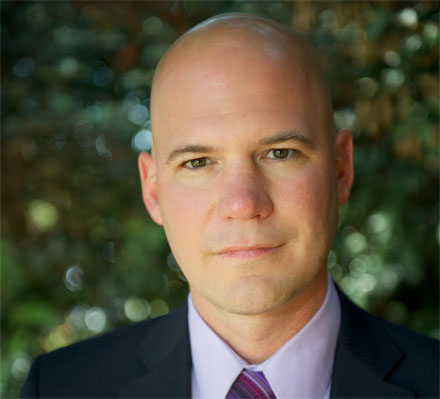NSW Govt appoints Silicon Valley champion

The NSW Government has appointed an Australian champion for the technology space in Silicon Valley, US.

Jason Seed
(Credit: NSW Government)
The plan to open a NSW Government Business Office in the US location was announced in October last year. Now, this morning, Deputy Premier and Minister for Trade and Investment Andrew Stoner has announced an executive to head the office, situated in the Stanford University Mid-Point Technology Park.
Jason Seed, who has headed up or held senior roles in various software companies based in the US and Australia, will take up the role of director of trade and investment, next month, working to build an awareness of NSW's attributes, in the hopes of luring new, innovative businesses to settle down under and to help NSW businesses connect with the US market.
"Silicon Valley is home to thousands of corporates, technology companies, research institutions and sources of finance; many of them household names, such as Google, LinkedIn, Stanford University and Sequoia Capital," Stoner said in a statement.
"By locating the office in the technology park, we are ensuring the NSW Government Business Office is as close to the heartbeat of Silicon Valley, as possible."
Seed had strong business networks to bring to the challenge, Stone said.
"Through his recent employment with international software solutions companies, Mr Seed has developed a thorough understanding of Silicon Valley, the American IT sector, the challenges faced by start-ups and the venture capital environment."
Seed said that the Silicon Valley office was a way for NSW to beat the recession blues.
"While the US economic recovery has been patchy, the impact on Silicon Valley has been minimal. In fact, it is going through a boom, with several initial public offerings and a healthy investment climate," he said.
The office is a major part of the strategy to make NSW an international brand, Stoner said.
"The new office will drive investment, and promote exports and the research and development capabilities of our key sectors, including digital services, ICT and clean tech," he said. "The US is our largest established market and Australia's largest foreign direct investor."
The state government has existing offices in Guangzhou and Shanghai in China, Mumbai in India and Abu Dhabi in the United Arab Emirates.
New mobile funds
The government also announced at CeBIT today the seven consortia it had chosen to receive a share of a $1 million fund to develop new mobile solutions for the public sector.
The NSW Department of Trade and Investment received 20 submissions for the program, which offers to support up to 30 per cent of project costs, to a maximum of $200,000.
"Collectively, the seven successful consortiums, announced today, expect to invest a total of $4 million in their projects and, over the next three years, create over 200 jobs and $80 million dollars in revenue, including $50 million in exports," Stoner said.
"These seven projects are all led by small-to-medium sized ICT companies, but many are supported by multinationals, with one supported by the University of Technology, Sydney."
The projects to receive funding are:
Locamate — a system to help users navigate through the Sydney Powerhouse Museum, and staff to track visitor numbers and movements to help tailor exhibitions.
NSW Government elastic infrastructure platform — a cloud-based infrastructure platform for developers and systems administrators to use to develop and deploy mobile applications for government agencies.
Mobile control room for security and surveillance — a project to send alerts to staff in the Australian Museum, Sydney, if an exhibit is stolen, and the use mobile phones as security cameras
BigTinCan dashboard — a mobile product for business and government executives overseas, to securely share and update large volumes of documents in multiple formats, while optimising mobile usage.
Rural location based services — a project enabling Department of Primary Industries veterinarians to record data about animals on their phones and tablets when patrolling rural areas.
Mobile multimedia guide at NSW State Library — a project to develop an interactive history tour of the Mitchell library.
Tapit Contentum — a project to tag exhibits at the Australian Museum, Sydney, to provide users with relevant images, audio and brochures on their mobiles for that exhibit.